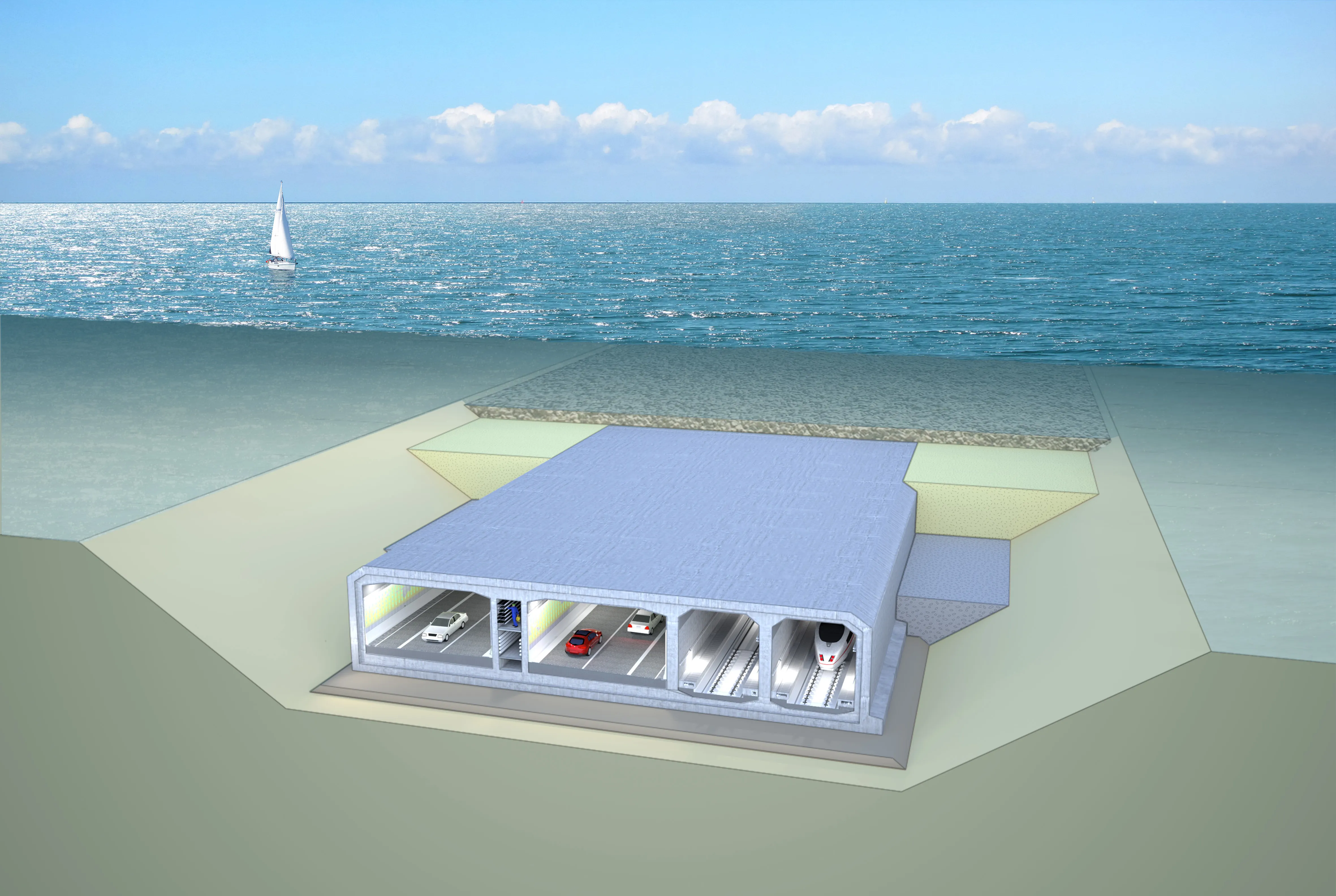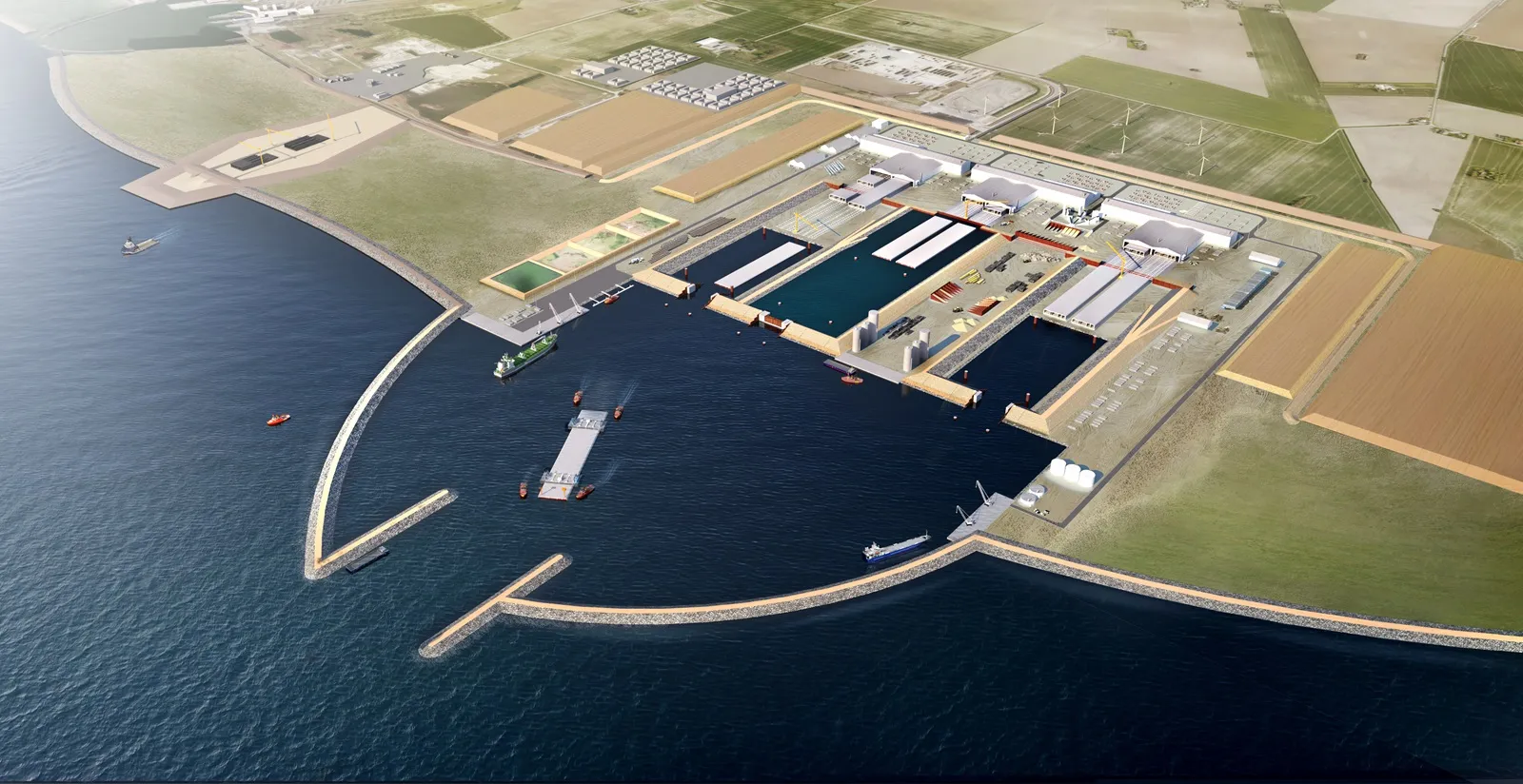The Danish government is in talks with contractors over the latest rise in cost estimates for the proposed prestigious Fehmarn Belt Fixed Link between Denmark and Germany. Contractors have estimated an extra €295.5 million will be needed. This is in addition to a statement last November by the contracting company Femern saying that costs had risen nearly €900 million. The total rise price hike is nearly €1.2 billion. This puts the final cost of the 18km tunnel including two railway tunnels, two motorway tun
February 19, 2015
Read time: 3 mins

The 1035 Danish government is in talks with contractors over the latest rise in cost estimates for the proposed prestigious Fehmarn Belt Fixed Link between Denmark and Germany.
Contractors have estimated an extra €295.5 million will be needed. This is in addition to a statement last November by the contracting company4782 Femern saying that costs had risen nearly €900 million.
The total rise price hike is nearly €1.2 billion. This puts the final cost of the 18km tunnel including two railway tunnels, two motorway tunnels and an emergency tunnel, at just under €7.4 billion.
Denmark’s Transport Minister Magnus Heunicke said the immersed tunnel project now faces new challenges, including the assurance that it gets as much financial support as possible from the1116 European Union through the so-called Juncker plan.
A report by the English-language Copenhagen Post noted that up to 18% of the available EU funds will be used on the so-called Juncker investment plan instead.
In July last year, the then designated2465 European Commission President Jean-Claude Juncker called for a €300 billion public-private investment programme to boost the European economy, create jobs for the young and stimulate growth over the next three years. Juncker, a former Luxembourg prime minister and who took office in November, said he wanted to see more investment in energy, transport, broadband networks and industry clusters.
Construction start had been scheduled for later this year and should take between six and seven years, but discussions over cost rises means that the start could be delayed, the Post reported.
The tunnel is part of the major infrastructure project called the Fehmarn Belt Fixed Link to connect the German island of Fehmarn with the Danish island of Lolland. The tunnel will cross the 18km-wide Fehmarn Belt, or Fehmarn Strait, in the Baltic Sea.
To facilitate construction logistics, Denmark recently announced it would create Rodby port, east of the small town of Rødbyhavn, specifically to service Fehmarn Belt construction.
Earlier this month Femern dismissed criticism from ferry operator Scandlines which said traffic estimates for the toll road would not be as high as a previous official study commissioned by Femern and carried out by independent analysts BVU/Intraplan.
Fehmarn Island is already connected by bridge to the German mainland and Lolland is already connected by a tunnel and bridges to Zealand over the island Falster.
Zealand is the most populated island in Denmark with a population just under 2.5 million, representing about 45% of the country's population.
Contractors have estimated an extra €295.5 million will be needed. This is in addition to a statement last November by the contracting company
The total rise price hike is nearly €1.2 billion. This puts the final cost of the 18km tunnel including two railway tunnels, two motorway tunnels and an emergency tunnel, at just under €7.4 billion.
Denmark’s Transport Minister Magnus Heunicke said the immersed tunnel project now faces new challenges, including the assurance that it gets as much financial support as possible from the
A report by the English-language Copenhagen Post noted that up to 18% of the available EU funds will be used on the so-called Juncker investment plan instead.
In July last year, the then designated
Construction start had been scheduled for later this year and should take between six and seven years, but discussions over cost rises means that the start could be delayed, the Post reported.
The tunnel is part of the major infrastructure project called the Fehmarn Belt Fixed Link to connect the German island of Fehmarn with the Danish island of Lolland. The tunnel will cross the 18km-wide Fehmarn Belt, or Fehmarn Strait, in the Baltic Sea.
To facilitate construction logistics, Denmark recently announced it would create Rodby port, east of the small town of Rødbyhavn, specifically to service Fehmarn Belt construction.
Earlier this month Femern dismissed criticism from ferry operator Scandlines which said traffic estimates for the toll road would not be as high as a previous official study commissioned by Femern and carried out by independent analysts BVU/Intraplan.
Fehmarn Island is already connected by bridge to the German mainland and Lolland is already connected by a tunnel and bridges to Zealand over the island Falster.
Zealand is the most populated island in Denmark with a population just under 2.5 million, representing about 45% of the country's population.







